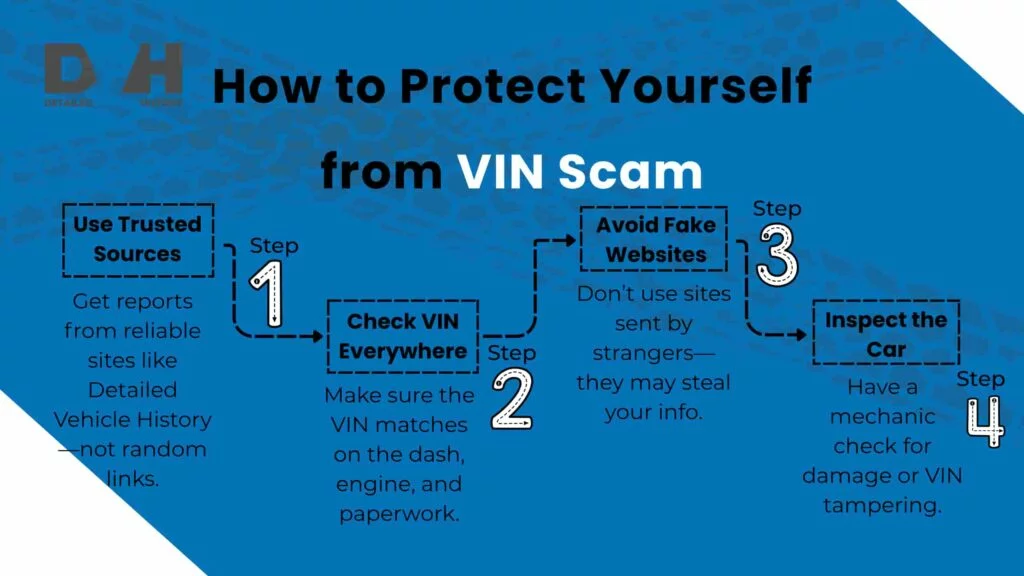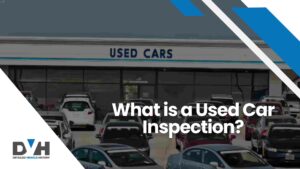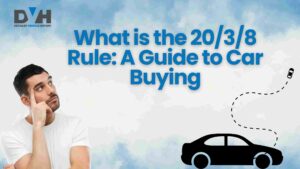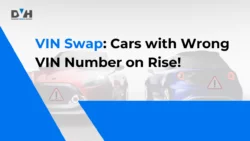When buying or selling a vehicle, you should be aware of the potential scams involving the Vehicle Identification Number that you could possibly run into. These scams lead to significant financial losses or legal trouble. This article will help you understand what VIN scams are, how they work, and how to protect yourself.
What is a VIN Scam?
A VIN scam is a fraudulent activity using a 17-digit vehicle VIN. Scammers exploit VINs to deceive buyers and sellers, often resulting in the sale of stolen or damaged vehicles under false pretenses.
How VIN Number Scams Work
One common target for VIN scamming is individuals selling cars online. A supposed buyer contacts the seller and expresses interest in buying the vehicle. They request the seller to get the vehicle history report from a specific, often unfamiliar website. Be aware that most thieves did VIN swapping, too, to mask a junked car.
The seller pays for the report, only to find that the buyer disappears, and the website may have collected their personal and financial information.
Can Someone Scam You with Your VIN Number?
Yes, scammers can use your VIN to commit fraud. For example, they might engage in VIN cloning, where they copy your vehicle’s VIN and assign it to the stolen car. This cloned vehicle is then sold to an unsuspecting buyer.
If discovered, the legitimate owner may face legal issues, and the buyer loses their money and the vehicle.
Read also: Is It Worth Repairing Your Car After an Accident? Find Out!
Signs You’re in the Middle of a VIN Scam
As a seller, it’s always important to be cautious if the buyer seems extremely suspicious by forcing you to use a random-looking VIN check website. Be aware of those signs.
- A buyer insists on using a specific, unfamiliar website for a vehicle history report.
- If the website seems suspicious.
- The buyer disappears after you provide the report.
- The vehicle’s VIN doesn’t match across different parts of the car
Those are the signs of potential VIN scams by buyers. To protect yourself from getting scammed, get a reliable vehicle history report to show to the buyer, so the buyer does not need to decode the VIN.
How to Protect Yourself from VIN Scam

Always decode the VIN and get the car report through reliable sources like Detailed Vehicle History, and not random sites sent to you by someone.
Some scammers might try to trick you into using fake websites that only want your money or personal details. Reliable sources offer accurate information and protect your safety when buying or selling a car.
Verify VIN Consistency
Check if the VIN matches across different spots in the car, such as on the dashboard, engine block, or the vehicle’s paperwork. In addition, check the car’s registration book to make sure the VIN is the same as it was written on it.
If the numbers are not the same everywhere, it may be a sign of tampering or VIN cloning. Always double-check before making any payment or signing anything.
Be Sceptical of an Unfamiliar Site
If a buyer or seller tells you to use a random website to decode the VIN, be aware that it might be a fake website to steal your information. Use a trustworthy website to get the vehicle history report.
Inspect the Vehicle
Before you buy any used vehicle, inspect the vehicle thoroughly, and ask a trusted mechanic to help you examine the vehicle. Check the hidden damage, signs of VIN tampering, or suspicious changes.
This inspection can help you avoid being scammed and give you peace of mind. A mechanic can spot problems that regular buyers often miss.
Read also: How to Check if a Car Has Been in an Accident
What to do if Someone Scams You?
You should remain composed and conduct an inspection if you suspect that someone, either the buyer or the seller, is defrauding you. Follow these steps to easily spot scams:
Monitor Your Information
If you have already shared personal information such as your name, phone number, or even banking details, it is important to keep an eye on your accounts.
You should check for any strange activity in your bank account, email, or phone. Sometimes, VIN scams are just the beginning of identity theft or larger fraud, so act quickly to secure your details.
Inform Others
Let others around you know if you’ve been targeted by a VIN scam, especially if you were selling or buying a car online.
You can also post your experience on online forums or community groups. Sharing your story can help protect other people from becoming victims of the same scam or website.
Conclusion
VIN scams are a growing problem in the world of buying and selling. Scammers usually use the fake website to clone the VIN and steal personal information like the VIN itself, name, phone number, or even card details. That is why it’s important to decode the VIN and get the vehicle history report is a reliable website.
Always double-check the vehicle’s VIN on different parts of the car and match it with the title and documents. Stay alert, report suspicious activity, and never trust links or websites from strangers. Your awareness can save you from becoming the next victim of VIN scams.
Frequently Asked Questions
How can a scammer use a VIN to commit fraud?
Scammers may use a real VIN from a legitimate car to create fake listings, clone vehicles, or issue false documents. This can trick buyers into buying stolen or salvaged cars without knowing it.
What are the signs that a vehicle history report is part of a scam?
If you’re asked to buy a report from an unfamiliar or third-party site sent by the seller, it’s likely a scam. Real reports come from trusted sources and don’t pressure you to pay quickly.
Can a fake VIN affect the legal ownership of a car?
Yes. If a car has a cloned or fake VIN, you could lose the car and your money. Police may seize the vehicle, and you’ll have no legal protection if the VIN isn’t valid.
Why do some buyers ask for VIN checks from specific websites?
Some scammers pretend to be buyers and ask sellers to use fake report websites they control. These sites charge high fees or steal your card details. Always use trusted platforms for VIN checks.










